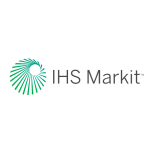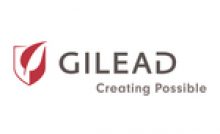Petronas CEO Wan Zulkiflee on the �Obligation� to Develop All Forms of Energy; The Importance of Affordable Energy to Asia�s COVID-19 Recovery and Transforming Petronas Into a Digital Organization


CEO of Petronas speaks with IHS Markit Vice Chairman Daniel Yergin for the latest CERAWeek Conversations – available at www.ceraweek.com/conversations
WASHINGTON–(BUSINESS WIRE)–Petronas President and Group CEO Tan Sri Wan Zulkiflee Wan Ariffin talks about how the SARS pandemic better prepared the company for COVID-19; his outlook for Asia’s “fragile” recovery and how oil and gas will remain a “very dominant” part of the energy mix in a new edition of the CERAWeek Conversations series.
In a new conversation with Daniel Yergin, vice chairman, IHS Markit (NYSE: INFO), Wan Zulkiflee—who is retiring next month after nearly four decades at Petronas and will become chairman of Malaysia Airlines—talks about the company’s past and future; how Petronas is also “stepping out” into new areas such as renewables and chemicals; and efforts to “feel the future” with initiatives related to carbon capture and utilization, hydrogen and more.
The complete video is available at: www.ceraweek.com/conversations.
Selected excerpts:
Interview Recorded Monday, June 15, 2020
(Edited slightly for brevity only)
- Petronas’ response to COVID-19 and how SARS strengthened emergency management procedures:
“This is a confluence of both [the] supply side as well as the markets. It is a very unique set of challenges that many companies like ourselves face. When demand collapsed, our inventories were coming up, logistics were affected, customers were not taking products and essentially, we had issues on all fronts. This is also when we adopted the philosophy of ‘you produce only what you can sell.’
“We had three task forces that were set up. The first one was what we call the corporate control center. The second one was to look at our liquidity, our cash. The third one is what we call ‘Petronas Fast-forward’—this is to look at what happens after this episode.”
Some years back we had SARS in the region. That has prepared us for some of our business continuity programs. The first thing that we did as early as mid- January was we set up our Petronas pandemic response team. We had to evacuate many of our staff from some of the overseas locations where we felt the health infrastructure may not be sufficient. We evacuated many of our employees—close to 1,000 of them, including some family members. Working from home was introduced very early in March.
“We are now better prepared. Our business continuity plans were better prepared. No doubt SARS did not hit us to the extent compared to this time around. But there were procedures in place. We had our business continuity plans being tested before this. That actually really helped Petronas this time around. In a way we were better prepared compared to some years ago.”
- Insights and assessments for managing the organization in a “new normal”:
“Some changes are here to stay. The way customers will behave in the future will be very different, and also the way the workforce, our staff, expectations of the workforce, will also be very different as compared to before this crisis. Some things that these task forces are looking at: How will the new business model be? What more innovations [can we] introduce into the business? How will our own workforce be? What kind of leadership traits will be very important going forward?
“My view is, traditionally, management visibility is so important. In the past, visiting sites, talking face-to-face with the staff, this is part of our job. Going forward, a lot of what we’re doing today, a lot of online interactions, we need to think what kind of leadership attributes will be really important 15, 20 years down the road? This is something we must think today because the complexion of the DNA of the organization will also be very, very different.”
- On Petronas’ push towards digitalization which COVID-19 has accelerated:
“In 2017 we created a chief digital officer. Now one of the ambitions and one of the top agenda [items] for the leadership team is really to transform Petronas into a digital and able organization. We have our own data academy. We generate and convert our staff into data scientists. What comes to mind on this digital transformation is a lot on behaviors—behaviors of the staff to make it a success, not only on the infrastructure, but also on the soft side. How people think, how people share data and how people behave, those are key prerequisites for any organization to really move on their digital journey.”
- On Asia’s energy markets, a fragile recovery and an increased emphasis on affordable energy:
“Asia remains [a growth driver] in demand. We really had a collapse these past few months, but we are seeing signs of opening up of the economies. But I feel that the recovery is fragile. We have got to be very cautious about what’s taking place, because another outbreak would really impede this trajectory of recovery that we are seeing, at least in Asia and Southeast Asia predominantly.
“For this region, the issue of the energy trilemma is very profound now: the question on security, affordability, and sustainability. Here, the affordability portion is very important. You see different countries at different levels of affordability. And also when you have this COVID episode it also affects the disposable incomes of a big portion of the population. Now affordability has become a key priority for many governments.”
- On the need for creative, bespoke customer solutions in the Asian gas market:
“We are pretty big on LNG. Seventy percent of our portfolio is gas. For any company to be successful, because the market is not so homogenous, companies have got to be very clever in terms of coming up with solutions for each individual customer, because the cost to serve a Shanghai customer is very different from the cost to serve a remote island in Indonesia. This tailoring of the solutions will be a key success factor for companies like us.”
- On the staying power of oil and gas for the energy future:
“We all know that there’s overcapacity these [past] few years. We have this herd mentality and also financial considerations that many companies are pulling back on FIDs (Final Investment Decision). I think it will have an impact on pricing maybe 5 to 7 years down the road. It’s always a very difficult balance of considerations where companies can decide to invest in periods of overcapacity.
“We take the long-term view that oil and gas will still be the main contributor under the many scenarios that we’ve run. Also, with IEA reports on the various scenarios, at least 50% of the fuel demand will be provided by oil and gas. Within that we are strong advocates of gas because it’s the cleanest fossil fuel.”
- On Petronas “stepping out” into new business lines and why “In this part of the world we cannot run away from solar:
“High-grading our portfolio is so important going forward. We focus on cash generation. We focus on extending our current value chain. And the last strategy is what we call internally ‘stepping out’—doing things that are not traditional to us. The first one is on renewables. We have invested and will continue to invest in renewables. In this part of the world we cannot run away from solar. Renewables is one area that we will allocate capex. This year we’ve allocated about 7% of our capex in this space.
“The other area that we are looking for and would like to invest more is on specialty chemicals. No doubt we have been a petchem player in this part of the world, but our exposure in specialty chemicals is quite limited today.”
- On an “all of the above” strategy as an obligation to energy markets:
“My view has always been in the long-run, energy demand will increase. For energy companies like us, our obligation to the markets is to develop all forms of energy. When it comes to oil and gas, the issue is on emissions. That’s why technology is important to address the issue of emissions. We are not saying that [oil and gas] will not be required; it will be required. In all of our scenarios, it is still a very dominant contributor to the energy mix.”
- On essential technologies for the energy transition:
“A lot revolves around digital. We’ve got initiatives that we call ‘Feel of the Future.’ These are pockets of digital applications that we are testing out on a pilot scale. On carbon capture and utilization, that’s another space that we are investing in, and also on hydrogen. Hydrogen is one area also that we are investing, but for Petronas, there’s a lot more work to be done in that space.”
- On Petronas’ new statement of purpose and corporate values for the future: “Last year we celebrated our 45th anniversary. The leadership team and I thought it was an opportune time to revisit our vision and mission. We came out with a statement of purpose: ‘A progressive energy and solutions partner enriching lives for a sustainable future.’ This string of 12 words will be the rallying call for Petronas as we look forward many years into the future.
“When I joined the company many years ago the demographics were very different. Today 55% of our staff is below 35-years old. Their priorities and their affiliations are very different from 35 years ago. This statement of purpose is really important to be a rallying call for our internal staff as well.”
Watch the complete video at: www.ceraweek.com/conversations
About CERAWeek Conversations:
CERAWeek Conversations features original interviews and discussion with energy industry leaders, government officials and policymakers, leaders from the technology, financial and industrial communities—and energy technology innovators.
The series is produced by the team responsible for the world’s preeminent energy conference, CERAWeek by IHS Markit.
New installments will be added weekly at www.ceraweek.com/conversations.
Recent segments also include:
- Leadership Dialogue with Hon. Dan Sullivan – U.S. Senator from Alaska interviewed by IHS Markit Vice Chairman Daniel Yergin
- Taking Practical Action on Carbon Emissions – OGCI Climate Investments Chief Executive Dr. Pratima Rangarajan interviewed by IHS Markit Senior Vice President Atul Arya
- Making better decisions for the energy transition – Robert C. Armstrong, director, MIT Energy Initiative, Chevron Professor of Chemical Engineering; Laszlo Varro, chief economist, IEA; Emre Gençer, research scientist, MIT Energy Initiative interviewed by IHS Markit Senior Vice President Atul Arya
- Leadership Dialogue with Bernard Looney – CEO of BP interviewed by IHS Markit Vice Chairman Daniel Yergin
- Leadership Dialogue with Ryan Lance – Chairman and CEO of ConocoPhillips interviewed by IHS Markit Vice Chairman Daniel Yergin
- The Outlook for Next Generation Biofuels – Markus Rarbach, head of business line biofuels and derivatives, Clariant Produkte and SSV Ramakumar, director of research and development, Indian Oil Corporation interviewed by IHS Markit Managing Director of F.O. Licht Christoph Berg
- A Hydrogen High Road? – Richard Boocock, senior vice president, chief information officer and special advisor to the chairman, Air Products and Chemicals Inc; Gwenaëlle Avice-Huet, executive vice president, ENGIE and Paul Browning, president and CEO, Mitsubishi Hitachi Power Systems Americas (MHPSA) interviewed by IHS Markit Advisor, Global Gas Simon Blakey
A complete video library is available at www.ceraweek.com/conversations.
About IHS Markit (www.ihsmarkit.com)
IHS Markit (NYSE: INFO) is a world leader in critical information, analytics and solutions for the major industries and markets that drive economies worldwide. The company delivers next-generation information, analytics and solutions to customers in business, finance and government, improving their operational efficiency and providing deep insights that lead to well-informed, confident decisions. IHS Markit has more than 50,000 business and government customers, including 80 percent of the Fortune Global 500 and the world’s leading financial institutions. Headquartered in London, IHS Markit is committed to sustainable, profitable growth.
IHS Markit is a registered trademark of IHS Markit Ltd. and/or its affiliates. All other company and product names may be trademarks of their respective owners © 2020 IHS Markit Ltd. All rights reserved.
Contacts
News Media:
Jeff Marn
IHS Markit
+1 202 463 8213
Jeff.marn@ihsmarkit.com
Press Team
+1 303 858 6417
press@ihsmarkit.com
Recent Posts
FBS Enhances Local Rescue Capabilities in Thailand with Critical Equipment Donation
BANGKOK, THAILAND – Media OutReach Newswire – 15 April 2025 - In response to the…
Art Director Syou Nam Thai Brings Future Climate Realities to Life in Homing Instinct Installation at Woodstock Film Festival
Art director Syou Nam Thai has recently garnered attention for his pivotal role in the…
Natural Diamonds Light Up Star-studded Red Carpet 2025
HONG KONG SAR - Media OutReach Newswire - 15 April 2025 - As the 2025…
In record time: Octa broker on how speed inspires trust
KUALA LUMPUR, MALAYSIA - Media OutReach Newswire - 15 April 2025 - In online trading,…
Rack Centre’s LGS2 12MW Data Centre, gamechanger to revolutionise Nigeria’s Digital Landscape
LAGOS, NIGERIA - EQS Newswire - 15 April 2025 - The newly commissioned LGS2 12MW…
2023 VinFuture Special Prize Laureate Prof. Daniel Drucker: Ample room remains for innovation in GLP-1 therapies
HANOI, VIETNAM - Media OutReach Neswire - 14 April 2025 - Together with world-renowned scientists…


